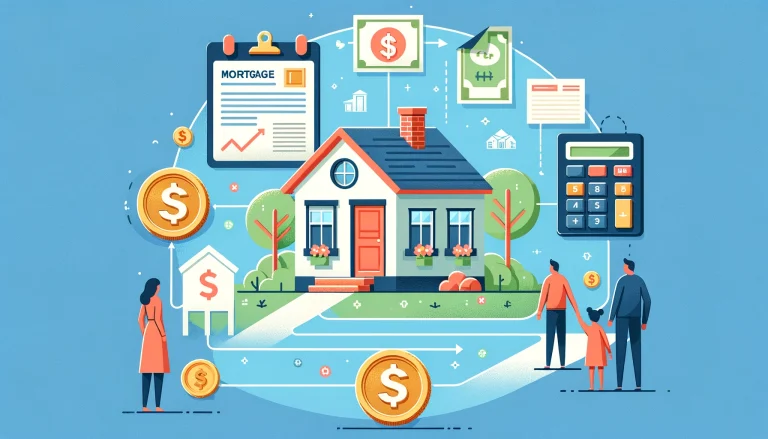Do you know how to consolidate student loans? If you’re struggling to repay yours, it’s best to learn what student loan consolidation is and how to go about it.
It involves borrowing a lump sum that pays off several student loan debts, so you can pay just one balance instead. With the faster debt payoff, you’ll be able to achieve debt freedom faster!
What is a Student Loan?
If you or your kids are studying, you’re definitely familiar with student loans. These are education funds borrowed from the federal government or from private institutions. Each has distinct purposes and confers different perks and benefits.
As tuition and other education expenses are astronomical in the US, some need it to study in universities.
Federal Student Loans
As the name suggests, federal student loans are the government’s way of helping folks receive an education. They typically have the most extensive range of repayment plans and the most lenient credit standards.
Moreover, there are several kinds of federal student loans meant for peoples’ various needs. You can get direct loans, direct PLUS loans, HRSA-sponsored loans, and others.

The federal government provides two kinds of direct loans: subsidized or unsubsidized. Both offer low interest rates and flexible repayment plans.
Direct subsidized loans allow temporary breaks from payments during military service or economic hardship. The loans pay the interest for a student during a half-time status, periods of deferment, or six months after graduation. There are also loans that cater to specific needs such as HRSA-sponsored ones.
These are provided by the Health Resources and Services Administration to those majoring in healthcare professions. In addition, those who want to consolidate student loans from the government can do so. They could choose from several private or federal student loan consolidation options.
Private Student Loans
On the other hand, private student loans are from companies that provide alternatives to federal student loans. Both parents and students can borrow for their education needs, but students usually receive more requirements.
They typically need a co-signer whose credit history will determine the loan terms and conditions they’ll get. Nevertheless, these loans are usually alternatives to PLUS loans with lower interest rates.
What are the Pros and Cons of Student Loans?
As with all things, student loans have benefits and risks attached. Student loans help you study at your dream university or college. Moreover, they can help you focus solely on studying since you may not need to work a side hustle.
Student loan consolidation can also help you build your credit while you study. Of course, student loans share their own slew of disadvantages.
First, they can be quite expensive, leading you to pay more than the original tuition fee. Also, you’ll be obligated to pay it back after graduation, so you might need to postpone your other plans. Worse, you might wreck your credit if you default on your student loans.
Can You Consolidate Federal Student Loans?
You can consolidate federal student loans. The federal government even provides its own consolidation options specifically for them. What’s more, private consolidation can help you with both private and federal student loan amounts.
It’s best to check all options available in each category and determine which one gives the fastest debt payoff.
How to Consolidate Student Loans
There are many ways you can consolidate your student loans and pay them faster. The federal government can only consolidate federal student loans, but companies may combine private ones as well.

As the loans themselves share their own advantages and disadvantages, so do the consolidation options. Learn how to apply for both, and determine which is best for you.
Federal Student Loan Consolidation
You can consolidate student loans from the government using its own fixed interest rate options. First, log on to the Department of Education’s Federal Student Aid website and register.
Next, wait for the suggested aid offers, choose the best ones, and start studying! Before you graduate, you’ll be given a six-month grace period for repayment.
Private Student Loan Consolidation
Alternatively, you can ask private companies like Sallie Mae to consolidate your private and federal student loans. You or a cosigner could apply separately or together, but you need several requirements like credit reports.
Then, you must submit those documents and wait for their approval. Once your credit score qualifies, they will provide the available options that you must sign to complete.
Will Consolidating Student Loans Hurt My Credit?
Private student loan consolidation can temporarily damage your credit rating since it’s considered as another loan. Your credit score will also determine the terms and conditions for this type of consolidation.
Much like other loans, you’ll receive the best repayment options and rates on the loans if you have good credit.

In contrast, the federal alternative does not impact your credit rating at all. The government does not take people’s credit scores into account when granting loan consolidation.
Nonetheless, both options can expedite student loan payment and help improve your finances.
Study your options carefully in order to identify the most suitable ones.
Is it Smart to Consolidate Student Loans?
It is wise to consolidate your student loans in order to improve your credit score. After all, diligent payments increase that number, and student loan consolidation helps you pay on time.
Student loans are considered good debt because they help your future, and consolidation can further assist you. Just make sure to choose your viable options carefully.
You can find student loan consolidation options on various websites. Check the government’s online site for available options and further guidance.
Alternatively, you can search your favorite search engine to find multitudes of private loan servicers. There are various loan programs with fixed rates and variable rates you could choose from.
In addition, check out student loan refinancing as well. Student loan consolidation takes the weighted average of your interest rates, so you might need to lengthen your payoff period. This can increase the amount you’ll have to pay over time.
Meanwhile, refinancing could get you a lower interest rate compared to what consolidation offers.












